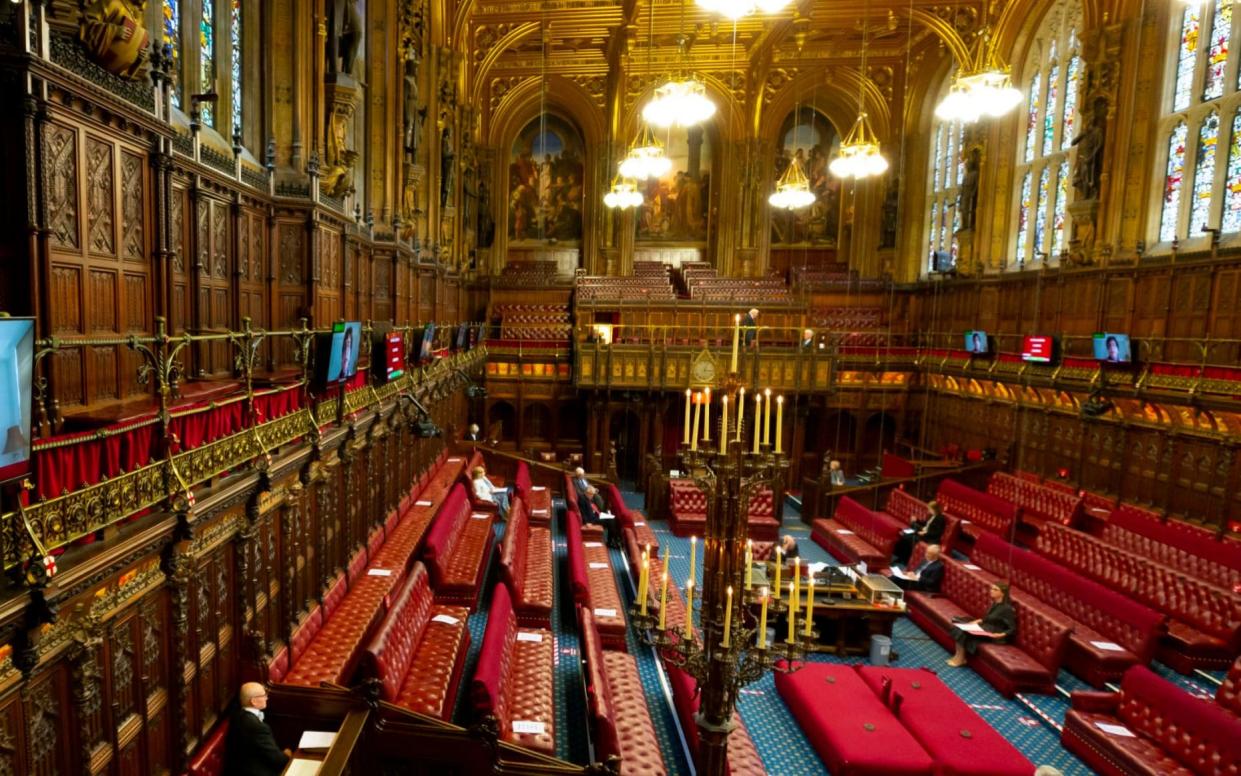Exclusive: Peers 'will be able to drive coach and horses through crackdown on outside earnings'

Peers will be able to drive "a coach and horses" through a new crackdown on their outside earnings which has been brought in following a major report on Russian influence in British public life, campaigners have warned.
It comes after The Telegraph disclosed how one peer, Lord Barker of Battle, was able to earn £6 million from a company linked to an ally of the Russian president, Vladimir Putin without needing to declare the sum to the Lords' authorities.
The Lords conduct committee last week published new rules on sitting peers' outside earnings which force them to disclose how much they are paid and the source of the payment if it comes from a "a foreign state, an organisation that might be thought by a reasonable member of the public to be foreign state owned or controlled [or] an individual with official status in a foreign state and acting in that capacity".
However the rules exclude lawyers who sit in the Lords and might have clients with links to foreign powers, as well as – campaigners said – offering enough opportunities for peers to challenge whether some payments need to be disclosed.
Asked whether the new reforms would have affected Lord Barker's 2019 entry, Bob Seely, a strong critic of Russian influence in British politics, said: "I can't see how this changes the declaration for Lord Barker.
"What we need to do is to have in place measures that the public are going to have confidence in not halfway houses.
"We need to be able to have foreign companies – even when they claim they are privately owned – like Huawei, or proxies that are likely to be acting on behalf of foreign leaders like Vladmir Putin. We need a Foreign Lobbying Act, especially in regards to Chinese and Russian covert influence which is a problem, which does exist and needs to be challenged and dealt with."
Sam Armstrong, the director of communications at the Henry Jackson Society, said: "This loophole is so glaring that a first-year law student could drive a coach and horses through it. The new rules would not have caught even a fraction of the most egregious cases in recent years."
Lord Barker declared his position as "independent non-executive director of EN+ Group" in his entry in the House of Lords register of members' interests until Feb 2019 when he took a leave of absence.
The peer told The Telegraph in September that "only a very small proportion" of the £6 million he was paid by EN+ – which has links to Putin ally Oleg Deripaska – that year related to the first two months of 2019 when he was an active peer. He also said that "none of my remuneration relates in any way to membership of the House of Lords".
Announcing the changes, the committee, chaired by Lord Mance, said it "will consider further whether Members should be required to register the level of all outside earnings as well as the source of that income in more detail before making wider recommendations".
However, a House of Lords spokesman pointed out that "unlike MPs, Members of the House of Lords are not salaried and are encouraged to continue with their existing careers when joining the House in order to bring that knowledge and experience to bear on scrutinising legislation".
In its report on Russia earlier this year, Parliament's Intelligence and Security committee said: "It is notable that a number of members of the House of Lords have business interests linked to Russia, or work directly for major Russian companies linked to the Russian state.
"These relationships should be carefully scrutinised, given the potential for the Russian state to exploit them."
A House of Lords spokesman said: “This reform responds to the fundamental issue raised in the Parliamentary Intelligence and Security Committee report - that active Members could be employed by foreign governments and connected organisations and individuals without declaring how much they are paid. That will no longer be the case. It is a major step forward in increasing transparency.
“The new rules match those in place in the House of Commons in allowing some exemptions where there is ‘a legal or established professional duty of privacy or confidentiality’. It would not be right to require Members providing medical or confidential legal advice, for example, to break the ethical standards of their professions. Members, including lawyers, will only be exempted from disclosure in such cases and to such extent as is strictly necessary to satisfy the requirements of professional confidentiality.”

